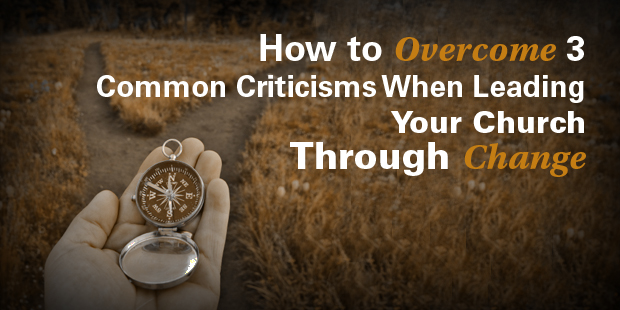
God’s 5 Investment Funds
Your congregation can invest in eternity by using their money for God’s purposes. It is secure. It is risk free. It comes with guaranteed interest. It yields dividends forever.
The Bible says, “Tell people to use their money to do good. They should be rich in good works and should give happily to those in need, always being ready to share whatever God has given them. By doing this they’ll be storing up real treasure for themselves in heaven. It is the only safe investment for eternity and they will be living a fruitful Christian life down here as well.” (1 Timothy 6:18-19, TLB)
1. Invest in God’s treasury fund (worship).
This is the investment fund most of your congregation will know about – tithing. We invest in the treasury fund by using some of our money to express worship.
There’s nothing we can give God that he needs. And God certainly doesn’t need our money. But when we give an offering to God – an undesignated, planned, and proportional offering where and when we worship – we’re saying, “God I love you.”
The Bible says, “Honor the Lord by giving him the first part of all your income.” (Prov. 3:9 TLB) We honor God when we tithe. It’s an act of worship. God wants us to give to this fund before we invest in any other fund. He doesn’t want our money; he wants what it represents.
2. Invest in God’s mutual fund (fellowship).
God also wants us to use some of our money to encourage fellowship, to show love to other believers, to build relationships.
Anytime I give my money to God, it draws me closer to God. Anytime I give my money to another person, it draws me closer to that person. When I give money to people in my small group or I invest in my small group, I grow closer to those in the group. Anytime I buy a nice card and write a note of encouragement, I’ve just invested in the mutual fund. When another believer is discouraged, and I take him or her out for lunch, I’ve just invested in the mutual fund.
Investing in this fund brings in dividends from elsewhere as well. The Bible says, “When you extend hospitality to Christian brothers and sisters, even when they are strangers, you make the faith visible” (3 John 1:5 MSG).
When we invest our money in developing relationships within the church, it points others to God. Investing in the fellowship of your church helps bring people to Christ.
3. Invest in God’s growth fund (discipleship).
God wants us to take some of our money and invest it in ourselves – in personal and spiritual improvement. The Bible says in 2 Peter 3:18, “Grow in spiritual strength and become better acquainted with our Lord and Savior Jesus Christ.” (TLB)
There are many ways to waste your money instead of using it to grow. But God wants us to use some of our money to grow spiritually, to develop skills, and to educate ourselves – so that we can become the kind of person God has shaped us to be. The Bible says, “Buy truth and don’t sell it for love or money. Buy wisdom, buy education, buy insight” (Prov. 22:23 MSG).
Anytime we use our money to buy a Christian book or a CD that helps us grow, we’ve invested in this fund. Or whenever we use our money to take a class or to learn something that makes us more of what God wants us to be, we’re investing in our growth fund.
4. Invest in God’s equity service fund (ministry).
God wants us to use some of our money to help people in need. God didn’t put us on this earth to live for ourselves.
This is all part of God making us more like himself. God is generous. Everything we have in life is because of God’s generosity. We wouldn’t have anything – we wouldn’t even be alive – if it weren’t for God’s generosity. And God wants us to be generous like he is.
God particularly wants us to be generous with the poor. All throughout the Bible, God tells us he is watching how we help the poor. For example:
- “Give to the poor, and you will never be in need. But if you close your eyes to the poor, many will curse you.” (Prov. 28:27 TEV)
- “When you give to the poor, it is like lending to the Lord, and the Lord will pay you back.” (Prov. 19:17 TEV)
5. God wants the people of your church to invest in his global fund (missions).
God wants us to use some of our money to take the Good News to the whole world.
Luke 16:9 is one of the most misunderstood verses in the entire Bible. Jesus says,“Use worldly wealth to gain friends for yourselves so that when it is gone you will be welcomed in eternal dwellings.” What in the world does he mean by that?
I believe Jesus is telling us that he wants us to take some of our money and use it to help other people get into heaven. So when you die and get to heaven, those same people will welcome you there and say, “Thank you for investing in me. I’m in heaven because of you. I’m not your friend for life; I’m your friend for eternity. I’m in heaven because you cared enough. You bought me a Bible. You bought me a ticket for an event. You did something with your money to help spread the Good News to my village. Because you gave, I’m now a follower of Christ, and I’m in heaven because of you.”
That’s the greatest possible use of our money! We can use the money from this fund locally or we can use it globally. Are there people in your church who want to participate in short-term missions, but they don’t think they can afford it? Encourage them to invest (or save) a little money each month for their global fund, so they can take the Good News of Jesus Christ to another country.
Investing in these five funds is eternally important. If your church members invest their treasure on earth, all they’re doing is piling up treasure here. But if we invest in eternity – in God’s eternal purposes – we’ll enjoy our investment forever and ever and ever.
This article is adapted from Rick Warren’s message, Enabling the Vision – Purpose Driven Giving.

Tags: Generosity, Investment, Rick Warren

























